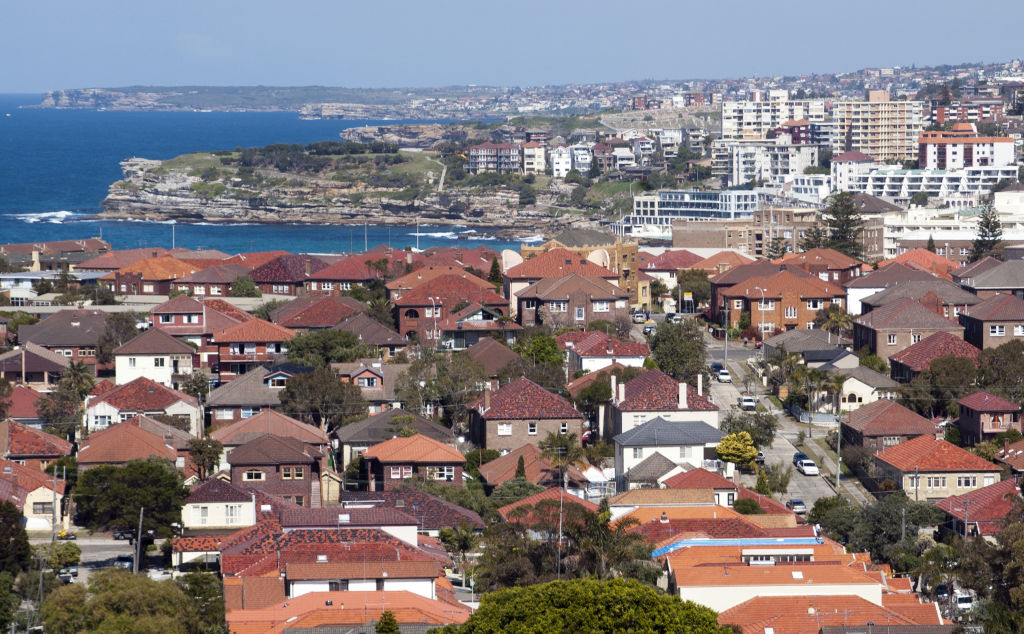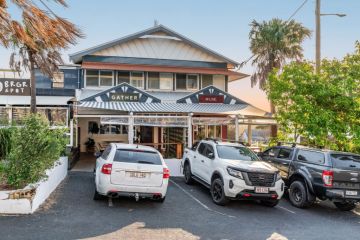Could the property market rebound by spring? Here's where will fare the best

Property experts are cautiously optimistic of a rebound in the market for the spring selling season, as long as the coronavirus outbreak is under control and consumer confidence levels rebound.
But the experts note that a recovery won’t be uniform across the market, with certain pockets faring better than others.
Domain economist Trent Wiltshire says property prices have held up reasonably well so far considering the effect of the pandemic on the market and the dismal economic outlook.
“So far there has been a bigger impact on the number of properties transacted than on property prices. But we could see things start to slow from here.”
Wiltshire says banks’ commitment to allow people to defer their mortgage payments for six months, record low interest rates and the federal government’s JobSeeker stimulus package should also help support the residential property market.
“Few people will be forced to sell even if there is a deep recession. But if the downturn lasts for 12 to 18 months we could see forced sellers.”
First National Real Estate chief executive Ray Ellis says the longer it takes to contain COVID-19, the greater the impact on the property sector.
“But early signs indicate government initiatives are slowing the spread of the coronavirus, so it’s possible the market will begin to recover in spring, following lower stock levels and softer results during autumn and winter,” says Ellis, who believes other factors will also moderate the impact the virus has on property prices.
“Housing values are likely to be somewhat insulated considering unprecedented government stimulus, leniency from lenders for distressed borrowers and record low interest rates,” he adds.
State of the market
Ellis says the premium end of the market has been the hardest hit so far.
“This sector always demonstrates the most price elasticity,” he said.”It led gains through the first quarter – now it’s showing the fastest decline in growth rates. More affordable price ranges will be less affected.”
Wiltshire agrees. “Higher priced areas tend to be more volatile in a downturn and they also tend to rebound faster. But this situation is so different it’s hard to say whether this will be the case this time.”
Nevertheless, Ellis believes the property market will continue to slow while consumer confidence levels remain muted. “Although low interest rates and the likelihood of low stock levels could underpin and slow declines in values.”
“Housing values are likely to be somewhat insulated considering unprecedented government stimulus, leniency from lenders for distressed borrowers and record low interest rates.”
The next few months will see fewer sales but a rise in listings from property owners fearful of making a loss on their property, according to On Your Side Investments founder Mike Harvey.
“Experienced investors will hold their position and prepare to buy more property as panicked sellers drop the price of their property,” he said. “Developers may also give discounts to clear new stock and keep their building wheels in motion.
“Once we get over this wobble phase, we’ll see the residential property market do what it has always done following a major economic upheaval and increase in value.
“I expect we will see positive results in months rather than years due to the synchronised hibernation nature of this phase.”
Harvey expects property prices in Sydney and, to a degree, Melbourne to drop by between 10 per cent and 20 per cent.
“Brisbane will see a small drop,” he said. “It was in the first hour of a property boom when the virus began to affect the market so it should lead the recovery phase.”
Green shoots
Ellis believes confidence will rebound if signs emerge through April and May showing the spread of the virus slowing to levels the nation’s health services can manage. “In this situation confidence is likely to rebound, leading to a recovery by spring.”
In the meantime, it’s important property investors and their tenants access all financial support available from federal and state governments.
“In this market it’s important to be realistic about renegotiating rents,” Ellis advises. “It’s also an idea to cut all non-essential expenditure to ride out this next period.”
Harvey says there will be further fragmentation of the market around the country once the market begins to turn.
“We don’t have a national property market – each city has its own cycle,” he said. “Property types such as houses versus units also have different cycles. Tourism-affected markets will be the last to recover.”
Harvey says tourist-heavy areas such as the Gold Coast, Hobart, Cairns and parts of Sydney may see values take a hit.
The best performers will be areas where there is strong job retention such as suburbs with thriving call centres, technology and food production businesses. Parts of Sydney, Newcastle and Brisbane are in this category.
Property prices in residential markets with good transport, infrastructure, schools and recreational and lifestyle areas will also come back strongly. Suburban areas with a low percentage of rental properties will do better than greenfield zones with a high proportion of rental properties.
Harvey has a particularly bullish outlook. “We are in a hibernation, not a downturn, so industry and business will ramp up like never before when the economic switch is turned back on,” he says.
“The collective sigh of relief will see people play catch-up doing things like shopping and lifestyle activities they haven’t been able to do. This will put dollars back into the economy quickly.
“International tourism is the exception. That will take a long time to find a new normal.”
Migration, which has helped drive the property market in recent years, is on hold for the moment. But this may also help drive the market down the track, Harvey says.
“Australia will perform well medically and economically during the pandemic. This will make the country even more appealing for overseas migration and business investment in the years to come.”
We recommend
We thought you might like
States
Capital Cities
Capital Cities - Rentals
Popular Areas
Allhomes
More







